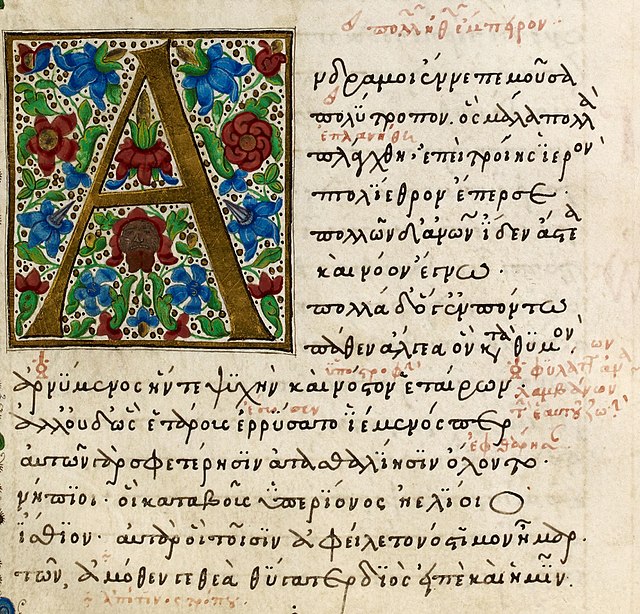Nostos is a theme used in Ancient Greek literature, which includes an epic hero returning home, often by sea. In Ancient Greek society, it was deemed a high level of heroism or greatness for those who managed to return. This journey is usually very extensive and includes being shipwrecked in an unknown location and going through certain trials that test the hero. The return is not only about returning home physically, but also focuses on the hero retaining or elevating their identity and status upon arrival. The theme of nostos is brought to life in Homer's The Odyssey, where the main hero Odysseus tries to return home after battling in the Trojan War. Odysseus is challenged by many temptations, such as the Sirens and the Lotus-eaters. If Odysseus had given into these temptations it would have meant certain death and thus failing to return home. Nostos is used today in many forms of literature and movies.

Figure riding a sea turtle, probably depicting an ancient Greek fable similar to Odysseus' Return to the Homeland (Nostos)
The Odyssey is one of two major ancient Greek epic poems attributed to Homer. It is one of the oldest extant works of literature still widely read by modern audiences. As with the Iliad, the poem is divided into 24 books. It follows the Greek hero Odysseus, king of Ithaca, and his journey home after the Trojan War. After the war, which lasted ten years, his journey from Troy to Ithaca, via Africa and southern Europe, lasted for ten additional years during which time he encountered many perils and all of his crewmates were killed. In his absence, Odysseus was assumed dead, and his wife Penelope and son Telemachus had to contend with a group of unruly suitors who were competing for Penelope's hand in marriage.
15th-century manuscript of Book I written by scribe John Rhosos (British Museum)
A mosaic depicting Odysseus, from the villa of La Olmeda, Pedrosa de la Vega, Spain, late 4th–5th centuries AD
Charles Gleyre, Odysseus and Nausicaä
Odysseus Overcome by Demodocus' Song, by Francesco Hayez, 1813–15





